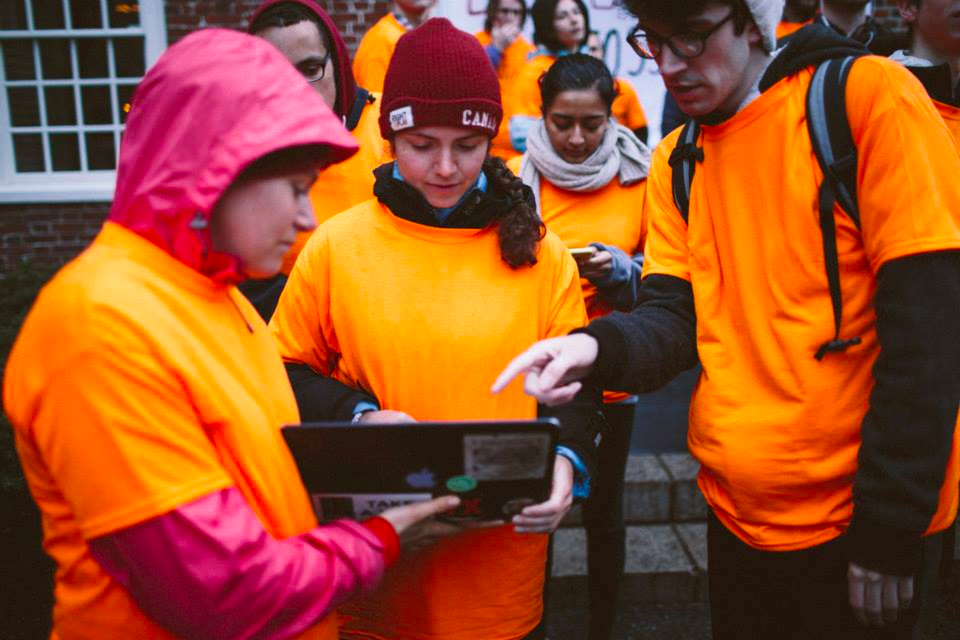
Last week, Divest Harvard, a campaign to push Harvard to divest from fossil fuels, staged a week of demonstrations in Harvard Yard. On Thursday, University President Drew Faust offered the student protesters a meeting if they ended their blockade. They declined, and I support that decision. I was one of the students who blocked the entrance to Faust’s office with Divest Harvard last year.
In November 2012, when Harvard students voted in the Undergraduate Council presidential election, I was on the ballot, running for president. For the first time in six years, undergraduates also had the chance to vote on referendum questions. There were three: one on establishing a social choice option in Harvard’s endowment, another on revising sexual-assault policies, and a third on divesting the university’s then $30.7 billion endowment from fossil fuels.
On Nov. 17, the council announced the results: I had been elected president, and students had approved all three questions. Harvard became the first school in the nation to pass a student referendum in support of divestment. Since the majority of voting students, 72% of the 3,556 voters, had passed the divest referendum, the council was obligated to support it in whatever capacity we could. Accordingly, I became Divest Harvard’s de facto liaison to the administration.
In the beginning, I didn’t feel any real ties to the movement. I was an interested but neutral bystander. I was impressed and, to be frank, intimidated by the conviction I observed in my peers who led Divest. As the rest of us bumbled through seminars and lectures and lunch meetings in desperate search of our passions, they possessed laser focus.
Over the next year and a half, I spoke at rallies and moderated a town hall featuring Harvard professors, some who supported and others who decried divestment. I facilitated meetings between Divest leaders and members of Harvard’s administration, including members of the Corporation Committee on Shareholder Responsibility and President Faust herself. Those meetings turned me from a bystander into a protester. You should know what happened behind those closed doors.
The first meeting, in February 2013, felt productive. But as the meetings continued, my skepticism about their utility grew. We kept hearing the same responses from university representatives: “This is a really thorny issue.” “Don’t discount the contributions Harvard makes through research.” “We can’t predict the future.” “The endowment shouldn’t be used as a political tool.” One of the CCSR representatives bemoaned the “myopic American public,” arguing that fossil fuels are too entrenched in our society for Harvard’s divestment to matter. Another suggested, “Driving a car has the same moral culpability as owning a fossil fuel company.” They reiterated that they believed climate change to be one of the world’s most consequential challenges, but that the university would not consider divesting. They promised instead to pursue engagement with fossil fuel companies through shareholder activism.
These meetings showed me a side of Harvard — an institution that I love — that terrified me. Harvard the corporation seemed to represent interests that ran directly counter to those of Harvard the venue for intellectual and social transformation. For the first time, it hit me. On this issue, impartiality was a false posture, and performing it made me complicit in the university’s iniquities. I abandoned my role as facilitator and voiced my disappointment, as a student, in the university’s technocratic, disempowering, and ultimately irresponsible approach. In early May, I woke up at 5:15 a.m., put on a bright orange shirt, and joined my peers blockading Massachusetts Hall, which houses the office of the university president.
That was a year ago. Now, Divest Harvard is at it again. The group continues to protest because the university has not only sustained but has also actually increased its sponsorship of fossil fuels by sevenfold. It’s clear that shareholder activism has been a failed tactic for other institutions and an empty promise by Harvard.
I commend the students, alumni, and community members who participated in the thoughtful civil disobedience during Harvard Heat Week. I encourage skeptics to avoid hasty judgments and instead consider that Divest is following in a long tradition of peaceful agitation that has created the conditions for Harvard to lead social movements for decades. Sit-ins and blockades helped push Harvard to cease financial support of companies tied to South Africa during apartheid and of Big Tobacco in America.
We must strive for consistency between our institutional values and practices. Harvard’s endowment is and has always been a “political tool.” It is time that we accept this. To respond to climate change, we need all of the tools at our disposal.
More Must-Reads from TIME
- Donald Trump Is TIME's 2024 Person of the Year
- Why We Chose Trump as Person of the Year
- Is Intermittent Fasting Good or Bad for You?
- The 100 Must-Read Books of 2024
- The 20 Best Christmas TV Episodes
- Column: If Optimism Feels Ridiculous Now, Try Hope
- The Future of Climate Action Is Trade Policy
- Merle Bombardieri Is Helping People Make the Baby Decision
Contact us at letters@time.com